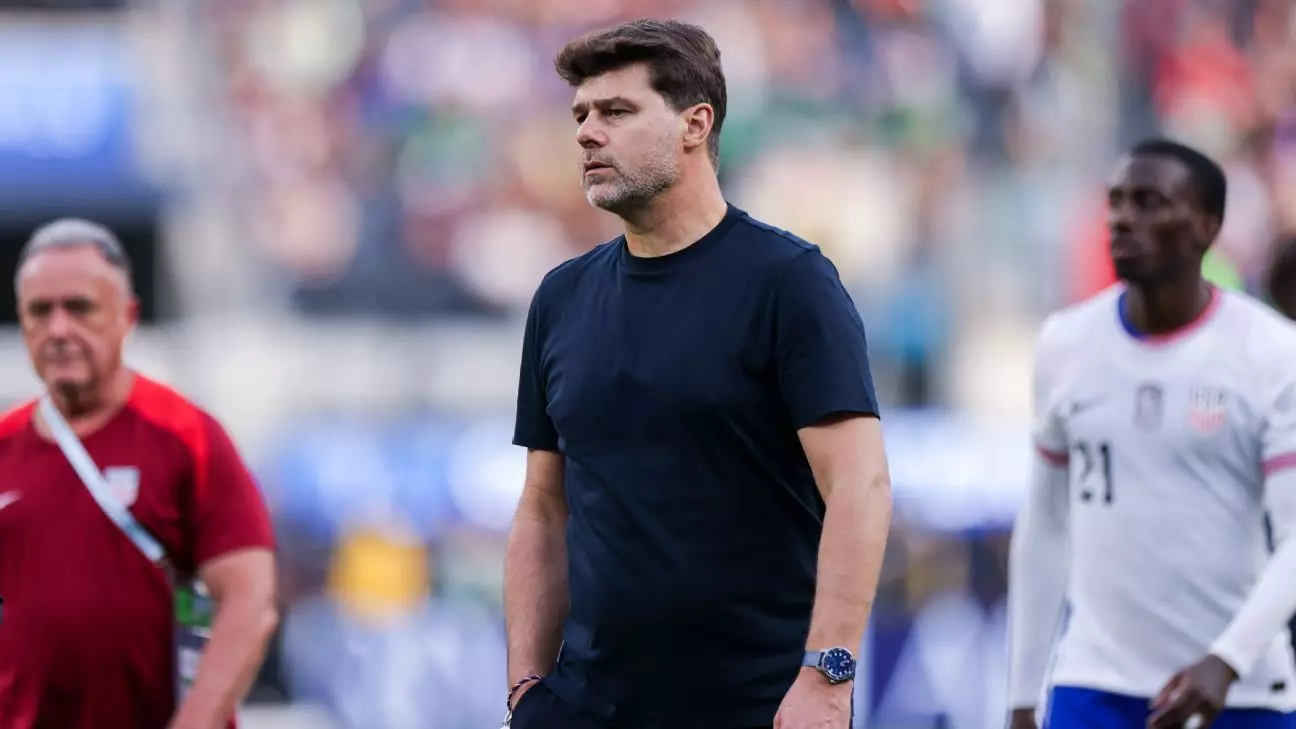The appointment of Mauricio Pochettino as head coach of the United States men’s national team (USMNT) has sparked intense debate. On one side, defenders hail his impressive coaching pedigree and tactical acumen; on the other, critics, including former coach Bruce Arena, argue that he lacks the cultural insight necessary to lead a team that represents a unique melting pot of American values. Arena’s statements highlight a significant point of tension: the idea that a foreign coach may find it difficult to navigate the cultural nuances that influence not only how players perform but also how they resonate with national pride.
Arena posits that coaching international football is fundamentally different from managing a club team, emphasizing the importance of understanding the environment in which one operates. He argues that a domestic coach will inherently possess a deeper appreciation for the cultural implications tied to representing one’s country on the global stage. While other nations have successfully appointed foreign managers—most notably Jurgen Klinsmann and Bora Milutinovic—Arena believes these exceptions do not diminish the broader context he references. In his eyes, failing to grasp the complex American landscape leaves the team at a disadvantage.
The Pressure of Representation
Pochettino’s most immediate challenge is leading the team into the 2026 World Cup, positioned as a pivotal moment for US soccer. With the tournament being hosted on home soil, expectations are heightened. Conversations about national identity and pride often take center stage during such significant events, and a coach’s understanding of these dynamics can resonate deeply with players and fans alike. Arena’s criticism suggests a concern that Pochettino may struggle to instill the same level of national pride that U.S. players need to embrace when representing their country.
Moreover, the USMNT has recently faced setbacks in regional competitions, including disappointing results in the Concacaf Nations League Finals against teams like Panama and Canada. Such losses can exacerbate the pressure on a team that is expected to rise to new heights in the upcoming World Cup. Pochettino himself has questioned the team’s mentality and character, indicating that raw talent alone isn’t sufficient for success. This notion aligns with Arena’s comments about the importance of instilling pride and understanding within the squad, which emphasizes the collective experience that transcends mere football tactics.
Assessing Leadership Styles: International vs. Domestic
When examining the leadership styles of foreign coaches versus American ones, the contrast can be stark. Domestic coaches like Arena typically have firsthand experience of the American sports culture, equipping them with the ability to connect with players on a more personal level. This nuanced understanding allows them to inspire players to fully engage with their heritage and the symbolic weight of wearing the national jersey.
In contrast, foreign coaches like Pochettino, no matter how qualified, may approach the team with different football philosophies and attitudes that do not necessarily dovetail with American values or the behavioral expectations of players. The key question is not just about strategy; it’s one of emotional resonance, especially in a sport where motivational elements are just as crucial as technical skills. The mental fortitude required to play at the international level can often be the deciding factor, particularly in tight matches that define careers and national legacies.
The Road Ahead: Urgency and Expectations
As the clock ticks down to the World Cup, the urgency for Pochettino to instill a sense of identity within the team is palpable. With a year left before the tournament, scrutiny from fans and analysts will only intensify. The burden doesn’t merely lie on tactical formations or player selections; it’s an existential challenge that requires capturing the essence of American soccer. While Arena acknowledges the potential of the players, he equally emphasizes the need for a coherent understanding of American culture to truly galvanize the team into becoming competitive on the world stage.
In the pursuit of sporting excellence, the focus must shift toward ensuring that cohesion, identity, and an understanding of what it truly means to wear the national jersey are ingrained within the team’s DNA. As the USMNT embarks on this journey into a complex world of international football, the intersection of culture and coaching will remain a pivotal debate in shaping its future successes—and failures.

